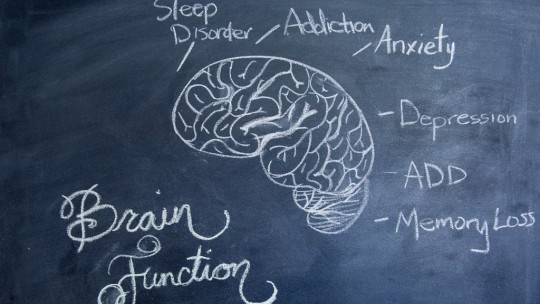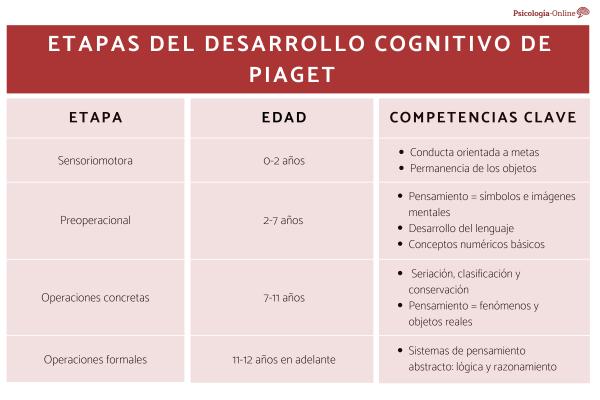The mind. This concept, whose exact meaning and functioning continue to be a source of speculation and debate on both a scientific and philosophical level, refers to the set of cognitive abilities available to a subject
This set of skills is what allows us, among other things, to have our own identity, solve simple or complex problems, detect and process different information and adapt to the environment.
However, These abilities do not remain stable from birth to death For this reason, it is of great importance to contribute to their development as far as possible. Therefore, this article is dedicated to visualizing a series of strategies and games to exercise the mind.
A question of brain plasticity
As we have mentioned, intellectual abilities are not an invariable element throughout life, but are modified depending on our life experiences, the environment that surrounds us and the level of environmental stimulation to which we have access.
This modification is mainly due to brain plasticity, the ability of the brain to change its structure depending on the needs of the organism and its pattern of functioning, allowing the restructuring of the thinking organ through the creation of neuronal synapses. It is this creation of new neural networks and strengthening of old ones that allows learning and consolidating new knowledge, allowing everything from acquiring a new skill to overcoming and recovering normal functioning after a brain injury.
Although plasticity is much greater during stages of growth such as childhood and subsequently declines, it is a property that continues to exist at all ages, making it especially important to maintain and apply it in later stages of life in order to maintain the well-being and proper functioning of intellectual abilities.
Neurogenesis: the ability to renew neurons
However, to promote neurogenesis (the birth of new neurons) and/or a strengthening or expansion of synaptic or neuronal networks, it is not enough to perform a specific exercise on a single occasion, but rather the modification of one’s own abilities and Behaviors require a habitual practice that allows the automation of new behavioral sequences and strategies, incorporating them into our habitual repertoire.
In other words, Habitual practice is necessary in order to improve or maintain our mental abilities, accompanying all this with an adequate diet and a healthy lifestyle. And, of course, an excellent way to make the networks of neurons that populate our brain become flexible and easily adaptable to the new challenges of everyday life is to use games to exercise the mind: these will get our brain used to creating a rich and varied network of interconnections, which will allow us to have greater mental flexibility.
Thirteen games to exercise the mind
Let’s see below a series of games to exercise the mind.
1. Mathematical training
The use of mathematics as a strategy to exercise the mind is known by many, including activities such as sudoku and other traditional games. However, this time the game is based on choosing a number completely at random (for example 12,345) and from other numbers (for example 6, 7, 8 and 9) developing a series of mathematical strategies in order to reach the initial number. To do this, addition, subtraction, multiplication, division can be used… It can be complicated by requiring the use of specific elements, such as requiring the use of square roots or more complex elements.
2. Find the pairs
Another game to exercise the mind, especially visuospatial memory, is the card pairing game It is based on displaying a set of pairs of identical cards on a table or flat surface after shuffling them (the type of deck or even images if available is irrelevant although it is recommended to use easy-to-remember images). The game consists of viewing the set of cards face up, visualizing the location of each pair of cards and after ten seconds of memorization, turning them all over.
Next they have to turn over one of the cards and then remember where their partner was located and turn it over as well. The game continues until all pairs of cards are found. This strategy for exercising the mind can be made more difficult by making the images to be remembered or recognized more complex, or by increasing the number of cards as the game ends and starts again.
3. Word list
This time the aim is to train memory by adding a creation component The game or strategy consists of the initial creation of a list of simple words, with a maximum of seven items. This list will be read by all participants, and it can be read aloud by one of them or each participant can be allowed ten seconds to memorize it. The game in question consists of each participant going to repeat the list of words in the same order in which they were issued in the list, adding one more word of their own at the end of it.
The next individual has to remember and say out loud the list plus the word added by the previous one and in turn add another, and so on. The strategy to exercise the mind is based on the retention of information, with a distraction component of having to imagine one more word and needing to pay attention to incorporate the new words. Specifically, working memory is exercised, especially auditory memory
4. Find your symbol
This game to exercise memory is based on maintaining sustained attention It can be used with symbols, words, letters or numbers. To carry it out, you simply have to use a varied set of symbols and signs, in which you must carefully search for one or several specific items. Technically, the operation is almost identical to that of the classic word search. In addition to attention, in this game the processing speed of the subjects can be observed, if the time it takes to complete the task is measured.
5. Word game: word association
This game requires several participants. In it, the first subject says a word, with the next participant having to respond with another which begins with the same syllable as the one the previous individual ended with. It can be complicated by adding rules such as the fact that they belong to the same lexical family or thematic area, or even trying to give the whole the form of a story. Processing speed and mental agility are improved, as well as creativity
6. Find the differences
In order to reinforce concentration, the ability to discriminate stimuli and the ability to focus on details, the game of finding the differences is very useful for exercising the mind. Its operation is based on locating a certain number of differences between two apparently identical images.
7. Puzzles and similar
Playing a game or activity as well-known as a puzzle is also a more than valid strategy to exercise the mind. Specifically, serves to exercise manipulative and visuospatial skills, having to operate with the situation of the pieces and place them correctly so that the pieces fit. To increase the complexity, you can increase the number of pieces needed, or move on to three-dimensional puzzles such as Rubik’s cubes.
8. Creating a story
This strategy for exercising the mind is simple but very useful**. Try to stimulate creativity by creating a short story**, in which a series of specific words chosen in advance must appear. These words may be known by the person performing the exercise or they may be unknown, in which case the challenge is greater whether they do not resort to external aids (a dictionary for example) or if they do, allowing the development of strategies to compensate for difficulties.
9. Riddles and dilemmas
This type of strategy to exercise the mind is grateful and enjoyable for both adults and children. It is based on the resolution of puzzles and dilemmas using the logic and creativity of the participants. Lateral thinking is also encouraged if questions are used that do not have a simple solution or that is completely correct or incorrect, seeking the generation of new strategies.
10. Debate
Although it may not seem like it, debate is one of the best games to exercise the mind. Participating in one on a regular basis allows you to train in argumentation and creation of coherent speeches For example, it forces us to think of the best responses to the opponent’s arguments, to prioritize some of our own arguments over others, to detect fallacies in the other’s explanations and avoid them in ourselves, etc.
11. Chess
Chess is the game paradigm in which the forecast of possible future scenarios is of fundamental importance. It is a game in which you have to follow very specific rules, which makes chance lose its prominence, and that is why you have to try to think of a series of possible moves for both your opponent and yourself.
12. Exquisite Corpse
A group game in which each person, in turns, makes part of a drawing based on what the person from the previous turn has drawn It can also be done by writing parts of a story instead of drawing. An excellent way to work on creativity.
13. Memory counting
This game is very simple and can also be played practically anywhere. When you are stressed in an area where there are a large number of objects or people, close your eyes and try to count the number of any of those elements by heart.











